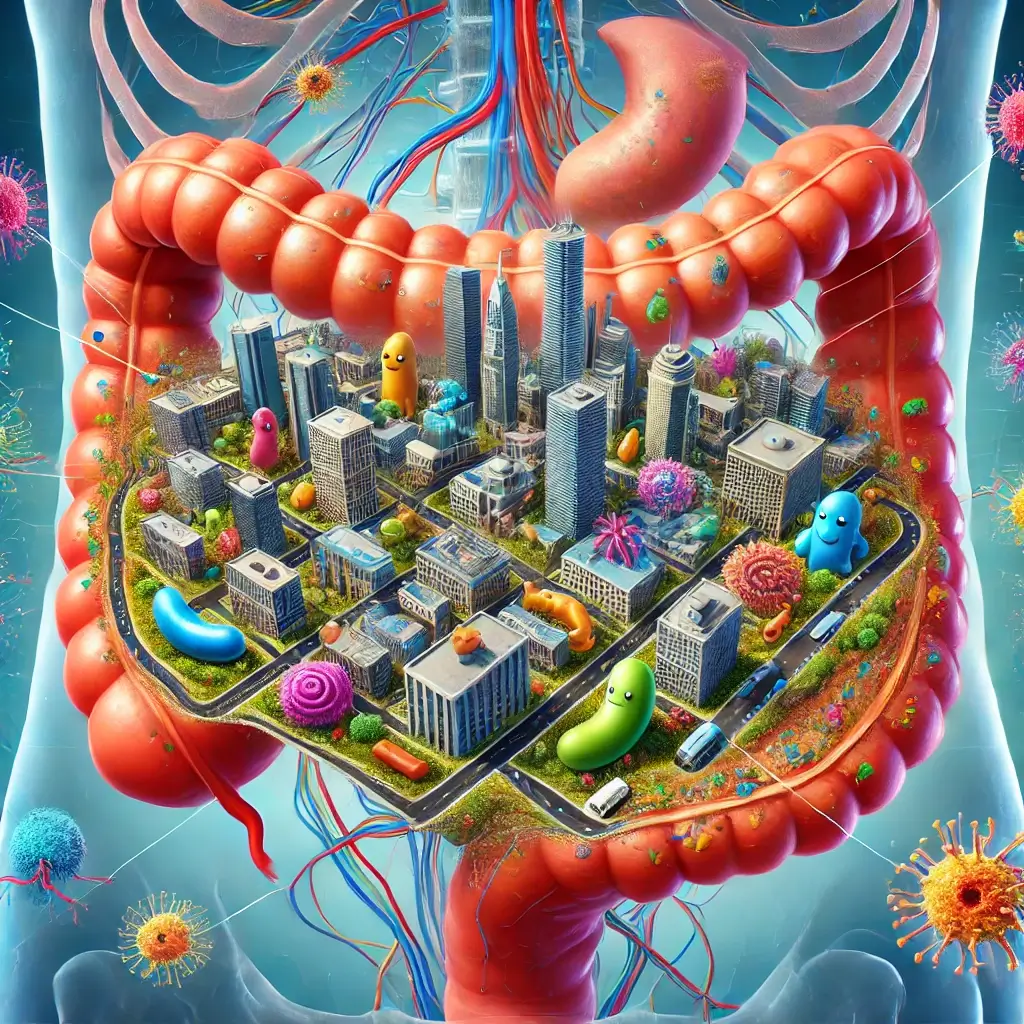The Hidden World Within: Understanding Your Gut Microbiome
Deep within your digestive system lies a bustling metropolis, home to trillions of microorganisms collectively known as the gut microbiome. These microbes, primarily bacteria, are not mere passengers in your body; they play an indispensable role in maintaining your health. From aiding digestion to modulating immune responses and influencing mental health, the gut microbiome is a critical player in your overall well-being. Yet, despite its importance, the gut microbiome often goes unnoticed until issues like digestive discomfort or immune dysfunction arise.
The Science Behind Gut Health
The importance of a balanced gut microbiome cannot be overstated. Scientific advancements in microbiology and medicine have unraveled the intricate connections between gut health and the rest of the body. Studies indicate that when the microbiome is diverse and in balance, it can improve digestion, boost immune resilience, lower the risk of chronic conditions, and even positively impact mood and cognitive functions. This article dives deep into the science-backed benefits of maintaining a healthy gut microbiome, offering insights into how this unseen world within can be nurtured for optimal health.
The Benefits of a Balanced Gut Microbiome
1. Optimizing Digestion and Nutrient Uptake
The digestive process relies heavily on the gut microbiome to break down complex carbohydrates, proteins, and fats. Beneficial bacteria produce enzymes and metabolites that aid in nutrient absorption. A study published in Cell Host & Microbe (2018) highlights the role of gut bacteria in facilitating the breakdown of complex carbohydrates and synthesizing essential vitamins such as vitamin K and B vitamins. These nutrients are critical for energy production, blood clotting, and overall cellular health (Chow et al., 2018).
2. Building a Robust Immune Defense
The gut microbiome is closely intertwined with the immune system, forming what scientists call the “gut-immune axis.” Research in Nature Reviews Immunology (2020) outlines how a balanced gut microbiome helps regulate immune responses by interacting with gut-associated lymphoid tissue (GALT). This communication is vital for distinguishing between harmful pathogens and harmless substances, thus preventing unnecessary inflammation and autoimmune responses (Thursby & Ley, 2020).
3. Protection Against Digestive Issues
An imbalanced microbiome, or gut dysbiosis, has been linked to conditions like inflammatory bowel disease (IBD) and irritable bowel syndrome (IBS). A 2019 review in Nature Reviews Gastroenterology & Hepatology emphasizes that restoring microbial balance through dietary changes and probiotics can alleviate symptoms and potentially prevent the onset of these disorders (Farrell & Carey, 2019).
4. The Gut-Brain Connection
The gut-brain axis, a bidirectional communication pathway between the gut and brain, underscores the impact of gut health on mental well-being. A groundbreaking study in Translational Psychiatry (2015) revealed that specific gut bacteria are linked to mood regulation and anxiety reduction. These microbes produce neurotransmitters like serotonin, which influence emotional stability and cognitive functions (Foster et al., 2015).
5. Maintaining Healthy Weight
Emerging research suggests that the gut microbiome influences metabolism and body weight. A 2017 study published in Cell found that individuals with a diverse microbiome had a healthier metabolic profile and were less prone to obesity. The study suggested that gut bacteria might regulate energy balance and fat storage (Turnbaugh et al., 2017).
Practical Steps to Balance Your Gut Microbiome
To harness the benefits of a balanced microbiome, consider the following strategies:
Dietary Adjustments: Incorporate high-fiber foods, fermented products like yogurt and kimchi, and prebiotics such as garlic and onions into your diet.
Probiotic Supplementation: Choose supplements with strains like Lactobacillus and Bifidobacterium that support gut health.
Stress Management: Chronic stress can disrupt microbial balance. Techniques like mindfulness, yoga, or regular exercise can help maintain harmony.
Avoid Overuse of Antibiotics: While necessary at times, antibiotics can disrupt beneficial bacteria, so use them judiciously.
Taking Care of Your Inner Ecosystem
The gut microbiome is a cornerstone of human health, influencing far more than just digestion. Its intricate role in immune function, mental health, and metabolism underscores the need to prioritize gut health. By adopting simple lifestyle changes, including dietary adjustments and stress management, you can foster a diverse and balanced microbiome, unlocking a multitude of health benefits. As research continues to uncover the vast potential of gut microbes, one thing remains clear: taking care of your gut is an investment in your overall well-being.
Scientific Sources
References
Chow, J., et al. (2018). Host–bacterial symbiosis in health and disease. Cell Host & Microbe, 24(4), 470–484. https://www.sciencedirect.com/science/article/pii/B9780128215739000151
Thursby, E., & Ley, R. E. (2020). Gut microbiota colonization, maturation, and stability during the first 1000 days of life. Nature Reviews Immunology, 20(8), 410–422. https://www.nature.com/articles/s41586-024-07754-w
Farrell, R. J., & Carey, M. C. (2019). Gut microbiota associations with IBD pathogenesis and treatment. Nature Reviews Gastroenterology & Hepatology, 16(7), 403–418. https://www.nature.com/articles/s41591-024-03280-4
Foster, J. A., et al. (2015). Gut microbiota composition of closed and open access cohorts influences baseline symptom severity and treatment response in anxiety disorders. Translational Psychiatry, 5(e709). https://www.nature.com/collections/gjdhfgjiid
Turnbaugh, P. J., et al. (2017). A gut bacterial phenotype in human twins concordant for obesity and discordant for metabolic syndrome. Cell, 171(5), 1223–1238. https://www.sciencedirect.com/science/article/pii/B9780128099544000359
